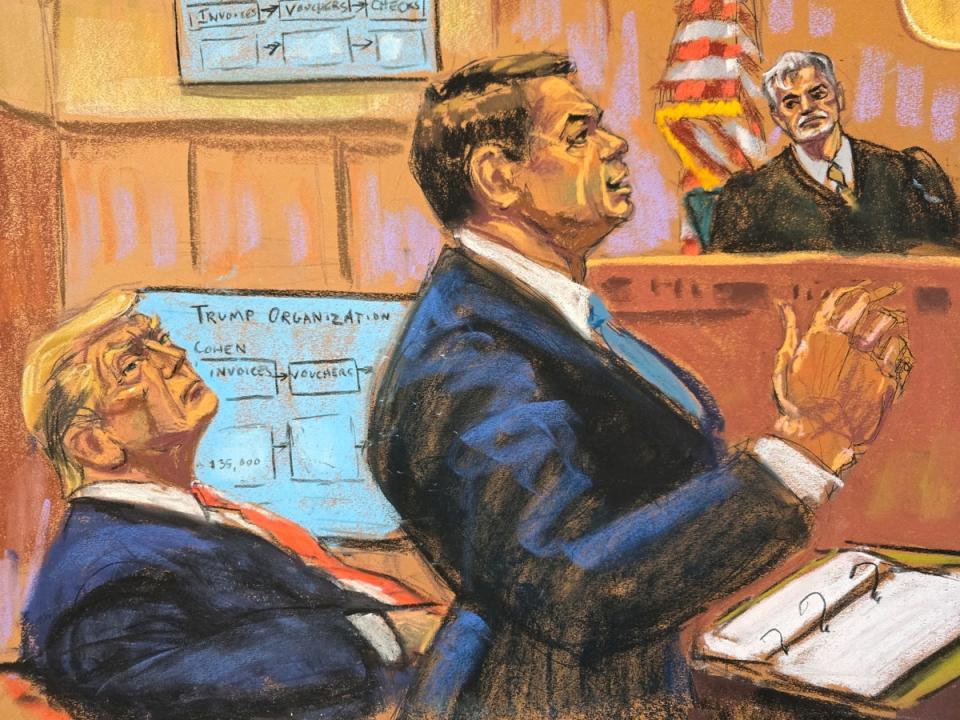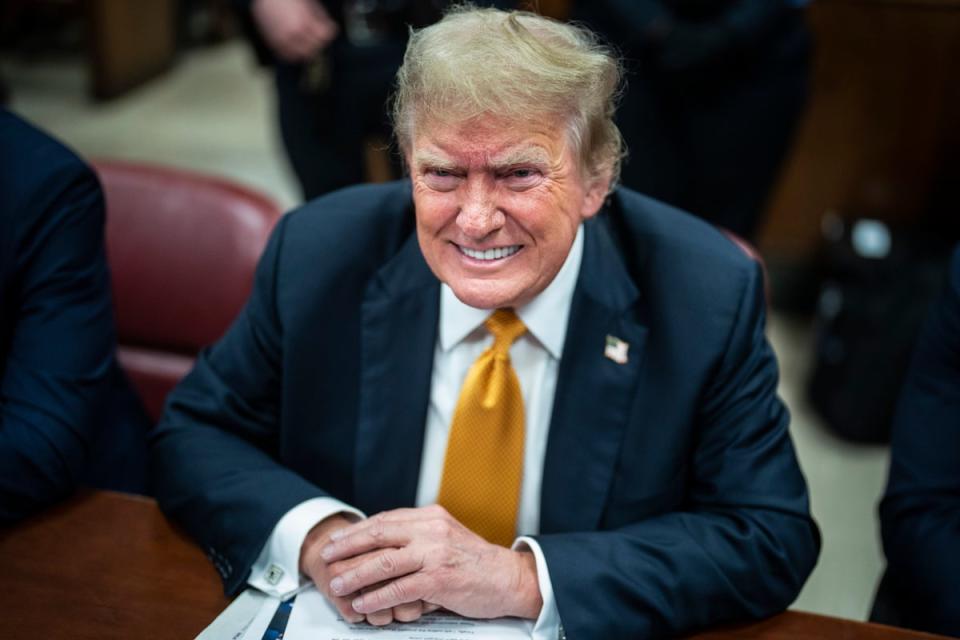What happens if there is a hung jury at Trump’s New York hush money trial?
Donald Trump’s New York hush money trial is drawing to a close and his fate is now in the hands of the jury of seven men and five women as they begin their deliberations after six weeks of revealing testimony.
The presumptive Republican presidential nominee stands accused of 34 charges of llegal falsification of business records to conceal a $130,000 payment made on his behalf to the adult film star Stormy Daniels one month before the 2016 presidential election to ensure her silence about an alleged extramarital sexual encounter a decade earlier.
Mr Trump denies both the liaison with Ms Daniels and all of the charges against him, repeatedly insisting, without evidence, that the case against him is a “scam” and a “Biden witch hunt” designed by his political enemies to sabotage his return to the White House.
Defense attorney Todd Blanche used his two-hour closing argument on Tuesday to attack the prosecution’s star witness, Michael Cohen, as the “GLOAT” (or, “Greatest Liar Of All Time”) and listed what he claimed were 10 grounds for reasonable doubt as he urged the jury not to convict his client, a verdict that would go down in history as the first-ever successful criminal prosecution of an American president.
For his part, Manhattan assistant district attorney Joshua Steinglass carefully laid out the chronology of events that he said amounted to a “subversion of democracy” over a near-five-hour summation, reminding the jury that the trial was about Mr Trump, not Cohen, and declaring: “The name of the game was concealment… All roads lead inescapably to the man who benefited most.”
Now it’s up to the 12 Manhattanites who have spent 22 days at Manhattan Criminal Court listening intently to the evidence to decide whose version of events they believe, with much likely to depend on their opinion of Cohen and whether they consider the hush money saga an insignificant bookkeeping error or a much more serious attempt to dishonestly influence a presidential election in Mr Trump’s favor by withholding important information from the voting public.
“Each of you must decide the case for yourself, after fair and impartial consideration,” Judge Juan Merchan instructed the jury on Wednesday morning. “And not simply because you want the trial to end or because you’re outvoted.”
A unanimous decision is required under New York law to secure either the conviction of a criminal defendant or their acquittal: anything else will result in a hung jury.

Simply put, that means it takes just one dissenting voice among the dozen jurors to leave the case in a state of limbo.
If such a disagreement arises but the gap between the two camps is relatively small – for instance, if 11 jurors are in agreement, with only one person holding out – their foreperson will report the impasse back to Judge Merchan, who will urge them to go away and resume their discussions in the hope of finding common ground, an instruction known as an “Allen” or “dynamite” charge.
But if a consensus still cannot be reached, the judge will be forced to declare a mistrial.
If that scenario comes to pass, it will fall to Manhattan district attorney Alvin Bragg to decide whether he wishes, or feels it is worthwhile, to attempt to retry the case.
The prospect of Mr Trump beating Joe Biden at the polls in November and returning as commander-in-chief would be a significant factor in making that determination, as the Republican could simply pardon himself as president and quash any attempted prosecutions or ongoing investigations into his conduct.

It is also possible that the jury might reach consensus on some but not all of the charges that have been leveled against the defendant, which could prompt the judge to accept a partial verdict.
In that scenario, the prosecution could also elect to retry Mr Trump.
Away from reporters’ mics and the blustering tone he adopts on Truth Social, the Republican himself is said to be philosophical about the looming verdict, telling his allies, according to The Bulwark: “Whatever happens happens. I have no control.”
The same publication meanwhile quotes a court attendee sympathetic to Mr Trump who claims that while there are “eight people on that jury who definitely hate Trump”, they believe they have also spotted at least one juror who “looks friendly” towards the defendant and reacted warmly when prominent Trump surrogates like JD Vance, Matt Gaetz and Lauren Boebert turned up at court.
The speaker acknowledges that their observations are pure speculation and could be entirely wrong but Los Angeles Times legal correspondent Harry Litman has likewise expressed concern about a juror he feels has been “less engaged and slightly irritable” compared to the rest.
Ultimately though, we just cannot know what is in the hearts and minds of the 12 American citizens chosen to decide The People vs Donald J Trump.


